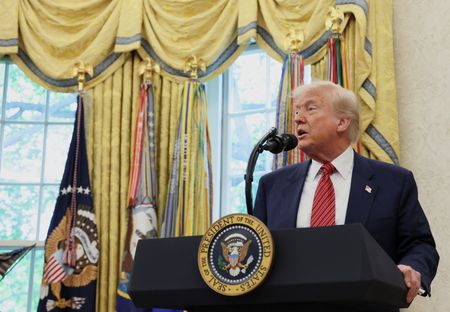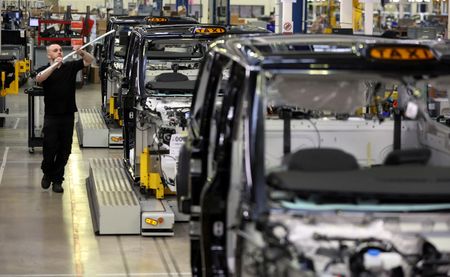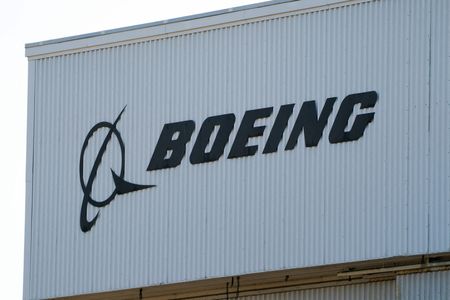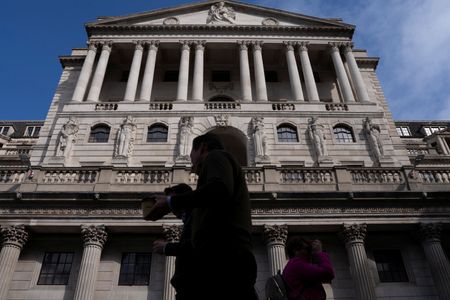(Reuters) -U.S. President Donald Trump is expected to announce a trade deal between the United States and Britain on Thursday, the New York Times reported on Wednesday, citing three people familiar with the plans.
Trump posted on Truth Social that he would hold an Oval Office news conference at 10 a.m. EDT (1400 GMT) on Thursday about a “major trade deal with representatives of a big, and highly respected, country,” using all capitalized letters.
He did not offer more details but said it would be the “first of many.”
A White House spokesperson declined to comment on the Times report.
Sterling jumped against the dollar after the news. A deal would be the second for Britain in a week after it clinched a free trade pact with India.
A UK official said on Tuesday that Britain and the U.S. had made good progress on a trade deal that would likely include lower tariff quotas on steel and autos.
Britain is also in “active discussions” with top U.S. officials over the 100% tariff on all movies produced outside the U.S. announced by Trump, creative industries minister Chris Bryant told parliament on Wednesday.
The news of a U.S.-UK trade deal comes as U.S. and Chinese officials prepare to hold talks in Switzerland on Saturday, which could mark the first step in resolving a potentially damaging trade war between the world’s top two economies.
Trump’s trade war has shaken up financial markets and raised fears of a recession, with central bankers and business executives wrestling with often chaotic policymaking that is rippling through world supply chains and a whole host of industries.
The International Monetary Fund last month slashed its growth forecasts for the United States, China and most countries, citing the impact of U.S. tariffs and warning that rising trade tensions would further slow growth.
FLURRY OF MEETINGS
Trade experts have warned that Trump’s demands could force London to confront sensitive issues from trading ties with the European Union and China.
Analysts note that since British manufacturers are part of European and global supply chains, they could be hurt by retaliation against U.S. tariffs.
Trump’s top officials have engaged in a flurry of meetings with trading partners since the president on April 2 imposed a 10% tariff on most countries, along with higher “reciprocal” tariff rates for many trading partners, though those rates were later suspended for 90 days.
Britain was not among the countries hit with additional tariffs, because it imports more from the U.S. than it exports there.
Trump has also imposed 25% tariffs on autos, steel and aluminum, 25% tariffs on Canada and Mexico, and 145% tariffs on China.
On Tuesday, Trump said that he and top administration officials would review potential trade deals over the next two weeks to decide which ones to accept.
Last week, he said that he has”potential” trade deals with India, South Korea and Japan.
(Reporting by Costas Pitas, Joseph Ax and Steve Holland; Writing by Shri Navaratnam; Editing by Christian Schmollinger and Neil Fullick.)











